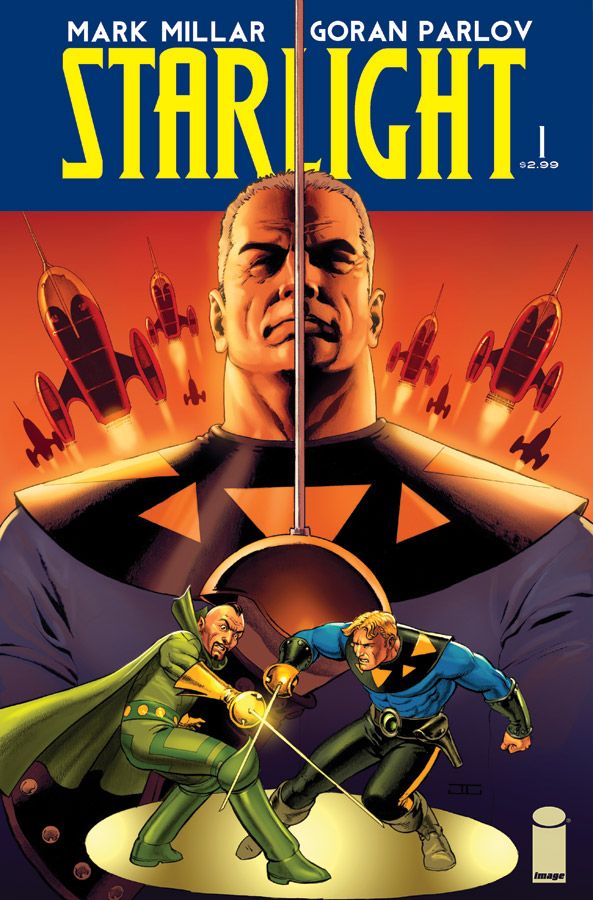The story of the human who gets transported to a distant world and ends up saving it is an old-but-good one in the realm of science fiction. Mark Millar and Goran Parlov's "Starlight" #1 uses the trope as a platform to answer the question, "What happens next?" And right out of the gate, this first chapter is a surprisingly good start.
It helps that while readers get a few glimpses of Duke McQueen's voyage to a distant world and becoming a hero, that's not the main focus of "Starlight" #1. Instead, Millar presents a story 40 years later, opening with Duke preparing for his wife's funeral. Since saving an entire planet, he's come home, gotten married, had children and grandchildren -- an entire life. It's a less orthodox starting point for a series, and that's certainly a small part of the appeal.
More importantly, though, Millar's filed down his normally hard emotional edges for something much softer and more welcoming. We get to see a few glimpses of Duke and his wife Joanne, and that overwhelming sense of love that the pair had for one another gives us characters that are atypical for Millar's comics. It's refreshing, really, and it makes you care about Duke. He's the kind of guy who cares so much about his wife and his family, and who at the same time is still proud of who he is and what he did. It's easy to cast Duke as the neighbor that you've known for ages, the good person that you might not think twice about but always know that you can depend on. In other words, he's the perfect kind of hero, and that's what readers need for a comic like "Starlight" #1.
The only part where the writing falters a tiny bit is the predictable angle. The "aging parent neglected by adult children" story has been seen before, after all, and this doesn't miss a single note. But at the same time, it's forgivable because it's clear where the story is going. As much as Duke loves his family, in order for him to be ready to go back to the other world, he will have to feel like they don't need him anymore. And so, there's a slow period of drifting away and neglect. It's sad, it's predictable, but it's necessary so the rest of the series can get rolling.
Parlov's art here is amazing, a cross between Alex Toth and P. Craig Russell. I love the rough-hewn faces from Parlov, which is where the Toth element comes into play. When readers see the flashback of Duke turning Attala and saying, "It wouldn't be paradise without my Joanne," it wouldn't be half as effective if it wasn't for that big dumb grin on his face, framed with the solid jaw and the crisp forelock curls of hair. He's drawn as the prototypical hero, someone who's stepped right off the pages of the pulp novel covers. But then it's also easy to see how the Russell element comes into play in the background. It's big and ornate, with gentle arcs of alien skyscrapers, and careful intricate metalwork on people's collars. There's no skimping on the art here, with every scene being crafted in a way that brings an entire setting fully to life. Ive Svorcina's colors look fantastic, too; they're soft and gentle, avoiding too much saturation as to not detract from Parlov's lines.
Between this and "Jupiter's Legacy," Millar's been debuting some refreshingly strong new series as of late. "Starlight" #1 has a real emotional heart, and that's definitely a lot of the attraction. Millar and Parlov are off to a great start with "Starlight," and if they can keep this up, they've got a real winner on our hands.

